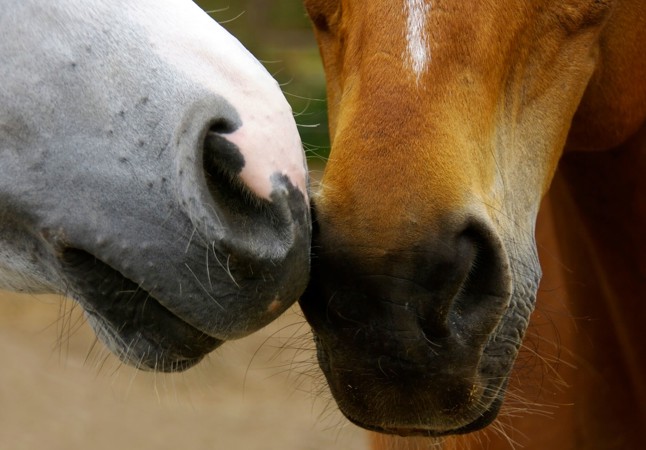Understanding Biosecurity
21 Jul 2025
Most contagious diseases that we see in horses are respiratory in nature, such as flu, strangles and herpes. Illness can be spread via direct contact (horse to horse), indirect contact (from horse to horse via people or shared equipment) or airbourne spread. It is important to think about transmission both between yards and between individual horses on the same yard.
New Arrivals:
New horses should be quarantined immediately on arrival; a minimum of 10 days is recommended but 3 weeks is ideal. The isolation facility should be a separate stable at least 25m away from other horses, and separate feeding, grooming and mucking out equipment should be used. Anyone in contact with horses in isolation must wash their hands and change their clothing and footwear before dealing with others. Horses in isolation should be monitored for any sign of illness such as a temperature over 38.5C, diarrhoea, nasal discharge, coughing or swelling beneath the jaw.
Competing Horses:
When out at competitions and shows, it is important to prevent your horse from having direct nose to nose contact with other horses. You should use your own equipment for feed and water; this is especially important if staying in stables overnight. Clean and disinfect your horse box or trailer after every use and clean all tack and riding equipment thoroughly. Don't forget to clean the soles of your boots and dip in a suitable disinfectant!
Turn Out:
Prevent contact with horses that are not from the same herd/ turn out group if possible; ideally adjoining fields should be double fenced and not have shared water troughs. Keep turn out groups fixed so that horses are not mixing with lots of different individuals.
Vaccination:
The standard vaccination protocol that most horse owners will be familiar with covers flu and tetanus. Vaccinations are also available for herpes (particularly important to consider in pregnant mares to prevent abortion due to herpes virus) and strangles; it's worth asking your vet whether your horse could benefit from these additional vaccinations.
High Risk Animals:
Certain groups are at a higher risk of both catching and spreading infection; these include mares and foals, youngstock, unvaccinated horses and horses purchased from sales or dealers. These groups should be kept separately from other horses to reduce the risk of contagious illness.
Signs of Illness:
Any horse showing signs of infectious disease should immediately be isolated in the same manner as described above for new arrivals. Your vet will attend (usually as the last visit of the day to avoid any risk of transmission to other premises) to examine the horse, take any necessary samples and advise on treatment and isolation procedures.
